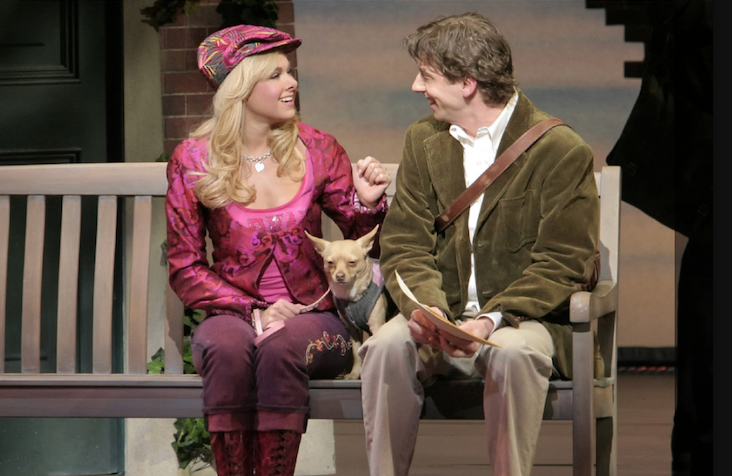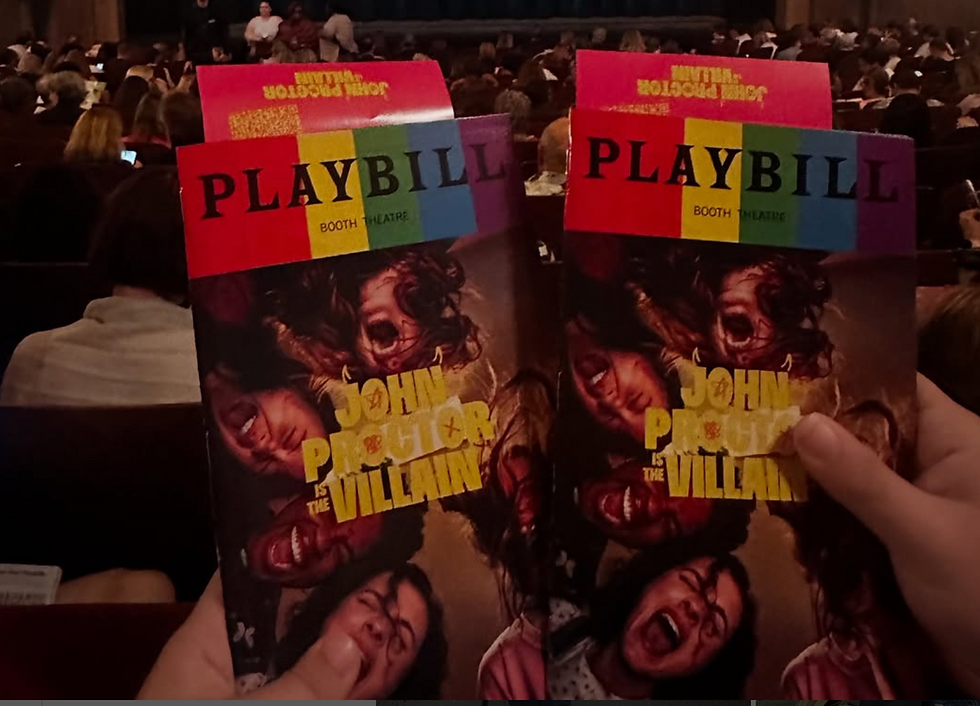How the eerily sexist undertones of Legally Blonde actually make it a feminist superpower
- Ariana Glaser

- Jan 11, 2025
- 3 min read
Updated: Jul 24, 2025

First introduced to the cinematic world in 2001, Legally Blonde soon found its place on the Great White Way six years later. Granted, the production did not stand the test of time, receiving mixed reviews and zero Tony’s. However, as Legally Blonde begins to make its way back into the musical forums through its recent uproar in high school and community productions, it appears that the political statement disguised as a giddy comedy may have just been too mature for its time—and yet, it may be exactly the musical we need now.
Many of Legally Blonde’s characters are caricatures, and each caricature makes a mockery of themself in a way that challenges world-view depictions of women throughout our society.
Warner Huntington III, Elle Woods’ cherished ex who proves to be moreso a villain by the end, is at first painted as the classic dream boy. But even from the beginning, Warner drops sexist remarks that the inattentive ear might easily disregard.

Take note of his very first appearance in the musical, in which he exclaims how lucky he is to have a girl who “looks like” Elle. Though Elle, of course, proves her worth and goes on to become Harvard Law School’s valedictorian and an overall feminist icon, it’s clear that Warner, the man she worships and nearly throws her life away for, sees her as nothing more than her appearance.
A viewer with a bird’s eye perspective of the scene might clearly pick up on this remark as a red flag, but to Elle, she herself has been trained to see this as a compliment and to be comfortable with existing only as a man’s trophy.
However, the fact that Warner’s comment is so easily ignored within the context of the musical is not so contradictory to how men often treat women in the real world, seeing as from an extremely young age, almost every woman is conditioned by the media to look a certain way in order to impress men, when on the contrary, Elle Woods’ character arc finds her investing herself into the greater good and internally building herself up to something worthwhile, ultimately winning her the far more genuine love interest in addition to her even more valuable achievement of discovering that she is worth more than her appearance.
But where Legally Blonde finds itself at its most sexist (to the untrained eye) is in its direct imagery of women, primarily Vivienne Kensington, the lead Delta Nus, and even the story’s ingenue, Elle Woods herself.
Vivienne is painted as a villain from the beginning, but by the end, her character progression is arguably as impressive as the lead’s. She goes from being Warner’s brooding new girlfriend—who is not so far above bringing Elle down to bring herself up to being Elle’s biggest advocate and eventually dumping Warner.
The Delta Nus are portrayed as larger-than-life in a way that almost mocks womanhood in its entirety, through tossing around “whore” and “slut,” pushing forth the narrative unto Elle that she must stop at nothing to win back a man that is clearly much better left in her past, and overall emphasizing their entire personalities around an inherently misogynistic overtone.

However, the clear difference between Elle’s persona against Serena, Margot, and Pilar’s is a clean cut statement on the absurdity of the illustrations of women that some believe to be factitious. The latter names are painted to be such absurdly humorous depictions of women to prove a point to men as to how women should not be shaped, and to prove a point to women as to how women should not treat each other.
As for Elle, she may seem to fall into the same stereotype as her Delta Nu sisters, especially after her arc has come to a close, but this idea couldn’t be further from the truth. Though even characters within the plot mock how her femininity broadly shines through even in her power moments, those spotlights of femininity are what makes those moments powerful.
As Elle makes her grand return to the trial after determining that she is more than Professor Callahan’s narrowly shrunken image of her, she strides in wearing a gleaming yet poignant pink suit, a clear paradox against the adjoining lawyers’ regal blues and blacks.
Though her dedication to femininity has invited unwelcome behaviors in the past, this prideful moment finds her reclaiming it in a way that is simply stunning: by the end, Elle Woods is not just a powerful woman, she is a Woman. In. Power.






Comments